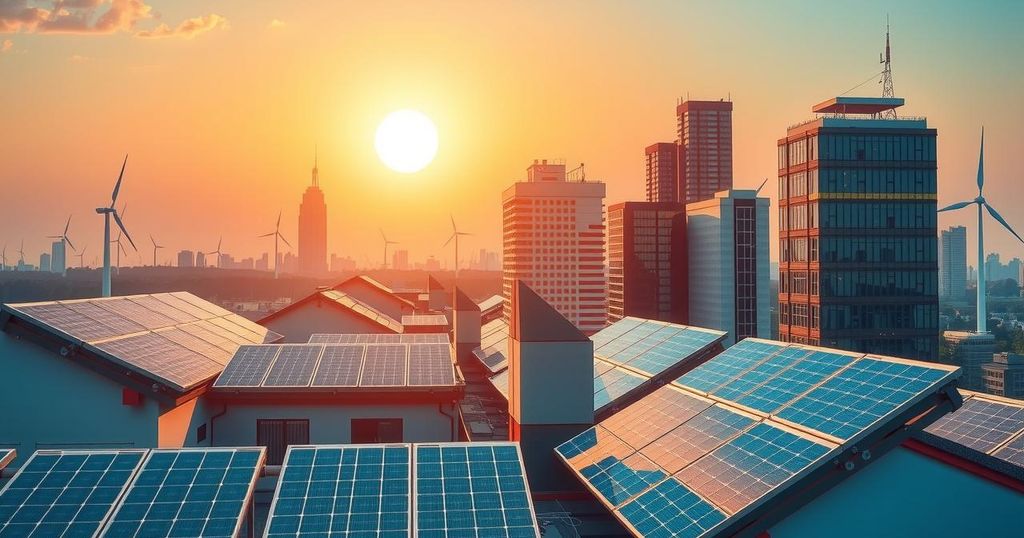Trump’s Day 1 Economic Strategy: Focus on Energy and Inflation

Donald Trump plans to forego tariffs on his first day in office, instead implementing executive actions to reduce energy prices and combat inflation. His strategy includes easing regulations on oil and gas and emphasizing domestic resource production. Despite previous tariff threats, he will study trade issues instead, highlighting the complexity of the economic landscape as he aims to bolster the U.S. economy.
Former President Donald Trump intends to forgo new tariffs on his first day in office, instead opting to focus on executive actions aimed at reducing energy prices and curbing inflation. Trump emphasized that excessive government spending contributed to the inflation crisis during his inaugural remarks and asserted his strategy involves increasing oil production to alleviate costs. These initial actions include easing regulatory restrictions on oil and gas production and declaring a national energy emergency to enhance electricity output as the U.S. competes with China in energy-intensive technology production.
In a move to reshape energy policy, Trump will sign a memorandum that contains a comprehensive approach to lowering inflation, which notably includes eliminating what he incorrectly describes as an electric vehicle mandate, promoting a shift back to gas-powered vehicles. This reflects both his campaign rhetoric and longstanding views regarding energy independence, even as the Biden administration encouraged a transition toward electric vehicles.
Although Trump has previously threatened tariffs against nations such as China and Canada, he currently appears to be delaying those moves and plans to direct federal agencies to study trade concerns instead. Trump promised that tariffs are forthcoming and stated that foreign nations would bear the costs. This cautious approach signals potential unpredictability for trade relations, particularly as Canada prepares for various scenarios under Trump’s administration.
Addressing the challenges he faces in managing inflation is important for Trump, as inflation has remained persistent despite previous government interventions aimed at curbing it. Housing shortages and record-high levels of oil production by U.S. producers pose additional hurdles. Central bank action, primarily through setting interest rates and other monetary policy tools, remains essential in tackling inflation, which has resurged since early 2021 post-COVID-19 lockdowns.
Trump’s focus on increasing domestic natural resource production is central to his economic agenda, aimed at reducing consumer costs for essentials like fuel and electricity. While he has noted the critical nature of energy pricing to overall economic stability, it is important to recognize that energy expenditures constitute a relatively minor portion of the consumer price index compared to housing and food costs. The inflation crisis, driven by various global factors, has complicated Biden’s efforts to stabilize prices amid geopolitical tensions and supply chain disruptions.
Despite recent efforts to restrain inflation, including multiple interest rate increases by the Federal Reserve, price increases are still apparent and voters remain dissatisfied with the economic situation, particularly in light of rising grocery prices. Trump has acknowledged the challenges that come with reducing elevated prices, and he envisions that many of his proposed economic reforms may require congressional approval.
Among his proposals are extending his previous tax cuts, which may significantly impact the budget, as well as removing incentives for renewable energy which he hopes will offset costs. This also includes contemplating repealing tax credits for electric vehicle purchases while relaxing environmental regulations on various vehicles.
The economic landscape shaped by inflation and energy prices has compelled political leaders, particularly former President Donald Trump, to propose immediate strategies to address these challenges. Understanding the roots of inflation, including excessive government spending and global economic pressures, is crucial for evaluating Trump’s planned remedies. He emphasizes energy production as a pivotal element in stabilizing costs for consumers, reflecting longstanding concerns about U.S. energy independence while navigating the complexities of international trade relationships.
In summary, Donald Trump’s initial steps in office will pivot away from immediate tariff actions, favoring executive measures aimed at reducing energy costs and controlling inflation. His focus on deregulating energy production and reshaping policies regarding electric vehicles reflects a strategic priority to restore U.S. economic dominance. However, accomplishing these objectives will require careful navigation of congressional dynamics, national priorities, and global economic realities.
Original Source: apnews.com








